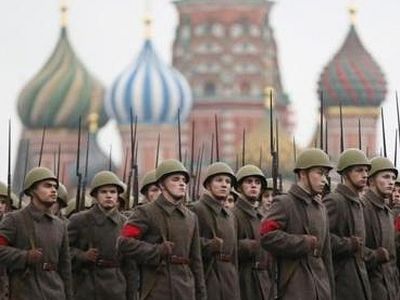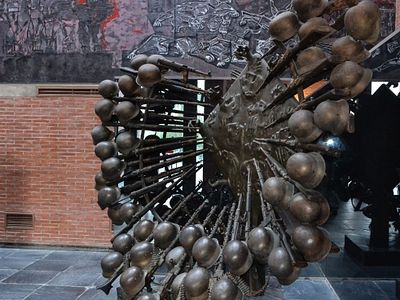New York, November 22, 2014
The third committee of the UN General Assembly on Friday passed a resolution urging countries to take more efficient measures to struggle against putting Nazism and other forms of racial discrimination, xenophobia and intolerance in a heroic light, reports TASS.
115 out of 193 UN member-countries voted in favor of the document, initiated by Russia. Three countries voted against the document: Canada, the USA, and the Ukraine. Another 55 delegations, including some European Union states, abstained from voting.
The resolution expresses concern over “the spread in many parts of the world of various extremist political parties, movements and groups, including neo-Nazi and “skinhead” groups as well as racist extremist movements and ideologies. The text also warns against “any form of glorification” of the Nazi movement and former members of the Waffen-SS organization, including erection of monuments and memorials to them.
In this connection the document “calls upon the states to take more efficient measures in accordance with the international standards in the sphere of human rights to struggle with these phenomena and extremist movements that pose a real threat to the democratic values.” At the same time, the General Assembly noted that the measures taken in opposition to the extremist political parties, movements and groups, “should be in line with international standards in the sphere of human rights.”
The Russian Federation’s Foreign Affairs Ministry on tendencies to glorification of Nazism
Speaking at the committee meeting, Anatoly Viktorov, the director of the Russian Foreign Ministry’s department for humanitarian cooperation and human rights, noted that adoption of the resolution is the duty of the General Assembly “not only before the UN founders but also before the future generations, whom the organization’s founding fathers sought to protect from the horrors of war forever.”
A. Viktorov has expressed his regret for the fact that no consensus was reached on adopting the document and also pointed out development of the tendency towards glorification of Nazism in recent times. According to him, “The days of liberation from Nazism are declared mourning days, while those who fought against the anti-Hitlerite coalition or collaborated with Nazis are elevated to the rank of national heroes.” “It is unthinkable that this is happening in Europe, which experienced the full horror of national socialism,” the diplomat stressed. “We feel certain it is not a matter of political correctness, but it has to do with attempts to distort history.” “This is undisguised cynicism and blasphemy towards those who saved the whole world from national socialism. Moreover, these are criminally punishable acts connected with article 2 of the International Convention on the Elimination of All Forms of Racial discrimination,” he warned.
Resolutions urging the UN to struggle against glorification of Nazism are submitted for consideration to the UN General Assembly every year. Last November, 126 states voted in favor of the document, and three countries—the USA, Canada and Palau—opposed it. The Ukraine was among the 50 delegations which preferred to abstain from voting.
How the Ukraine explained its decision
The Ukrainian diplomat Andrei Tsymbalyuk, explaining his country’s decision to vote against the resolution, first of all noted that Kiev condemned “Nazism, neo-Nazism, or other violent totalitarian ideologies as well.” He stated that millions of his compatriots had fallen victims of “another totalitarian regime—that of Stalinism.” “Until both Stalinism and neo-Stalinism are equally condemned, like Nazism, neo-Nazism, and other forms of intolerance, the Ukraine will not be able to support this document,” the diplomat said.
Following its adoption at the third committee the document will be submitted for ratification by the General Assembly’s plenary session which is scheduled for December 2014. However, this step will be a mere formality, given that all the 193 UN member-nations make up the committee.




